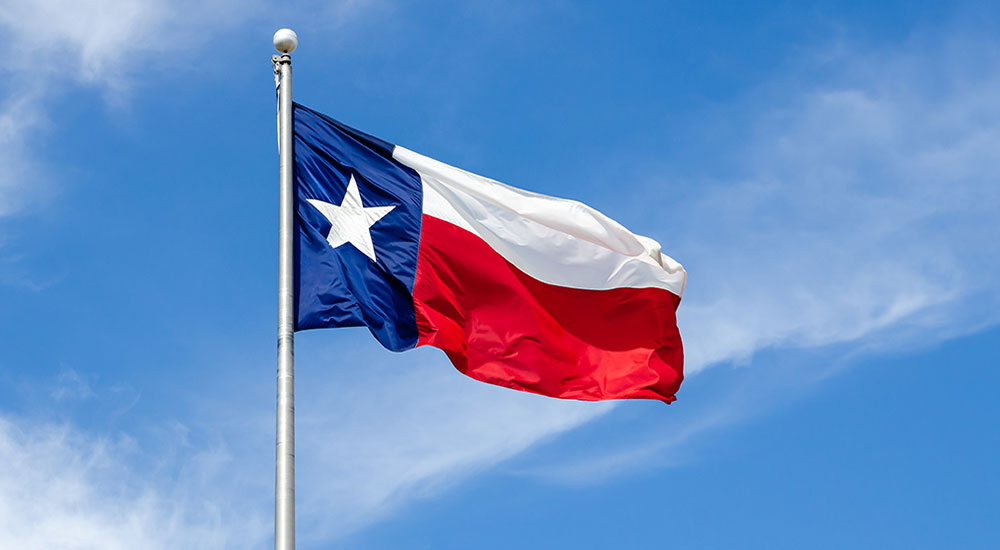Texas Governor Greg Abbott signed a bill that would restrict expressive activities on college campuses, partly reversing a 2019 bill meant to protect Texans’ rights to protest on public campuses.
The new legislation (SB 2972), signed by Abbott on June 20, includes limitations on how, when, and where people can demonstrate on college campuses. Under the new bill, college leaders will get to decide which areas are public forums. Conversely, the 2019 bill (SB 18) had established all common outdoor spaces on a public campus could be used as traditional public forums, Inside Higher Ed reports.
Individual colleges can also now determine whether the public is welcome to demonstrate on their campus. The bill changes language that says “all persons” can participate in expressive activities to “students enrolled at and employees of an institution of higher education.” The new law also prohibits all expressive activities on public campuses from 10 p.m. to 8 a.m.
The new law also bans encampments, demonstrations during the last two weeks of classes, wearing masks or other disguises to hide one’s identity, and lowering the U.S. flag or Texas flag in order to raise another nation or organization’s flag.
RELATED: University of Michigan Ends Contracts with Undercover Investigators Who Surveilled Pro-Palestinian Protestors
Since Hamas’ Oct. 7, 2023, attack against Israel and Israel’s subsequent war in Gaza, at least 100 pro-Palestinian protests have taken place on public college campuses in Texas, according Harvard University’s Nonviolent Action Lab. Encampments have also been erected on at least four campuses, the most notable at the University of Texas at Austin in April 2024 when police arrested 57 protesters at a demonstration after Governor Abbott declared the protest antisemitic.
During a second protest several days later, 79 people, including 34 students, were arrested at an encampment at the school’s South Mall. Protesters and officers clashed, resulting in officers deploying flash bangs and tear gas before zip-tying dozens of demonstrators and loading them into vans. While 79 people were charged with criminal trespassing, all charges were ultimately dropped several months later.
Proponents, Opponents Speak to SB 2972
Steven T. Collis, a law professor at the University of Texas School of Law and the director of the school’s Bech-Loughlin First Amendment Center, told Inside Higher Ed that he believes the main goal of the legislation is to prevent outsiders from protesting. During last year’s demonstrations, many people, including politicians and campus administrators, admonished the participation of “outside agitators.”
Carson Bethall, the president of the Texas A&M University chapter of Young Americans for Freedom, a conservative student organization, said in an interview with Inside Higher Ed that while he understands the want to limit who can protest on campuses, the rule may be too broad.
“Christian apologetics come to college campuses, especially in Texas, and dialogue with students in large group forums,” he said. “It’s been somewhat of a disruption—you have to take a different route to class because there are so many people in one area … but if we’re going to read everything equally, that would be prohibited, which, I don’t really think it should be prohibited.”
RELATED: University Emergency Management’s Response Role in Civil Unrest
While introducing the bill during an April hearing, the author, Senator Brandon Creighton, argued that the legislation strengthens the 2019 law by “[reaffirming] the expressive rights of students and employees in Texas public institutions of higher education while also setting boundaries intended to prevent unnecessary disruption and to ensure campus safety.”
Texas Senator Joan Huffman, who authored SB 18, agreed with Creighton in a written statement to Inside Higher Ed.
“I supported Senate Bill 2972 because it establishes clear and necessary boundaries to prevent disruptions on college campuses while prioritizing community safety,” she wrote. “I believe that Senate Bill 2972 does not undermine the intent or goals of Senate Bill 18 from 2019. Both bills work to ensure that our academic environments remain spaces for open dialogue and learning, fostering an atmosphere where diverse perspectives can thrive while maintaining safety.”
Sameeha Rizvi, who works for the Council on American-Islamic Relations’ Texas chapter, said at the hearing that the new legislation does not uphold the goals of SB 18.
“[SB 18] was championed as protecting expression on campus, setting an example for the rest of the country to encourage, not penalize, thoughtful debate, dialogue and expression,” she said. “SB 2972 directly contradicts the Legislature’s own commitment to campus free speech.”
The American Civil Liberties Union of Texas also spoke out against the bill.
“S.B. 2972 threatens the free expression of all Texans, regardless of political beliefs,” said Caro Achar, the organization’s engagement coordinator for free speech. “This bill imposes broad restrictions that allow school officials to restrict how, when, and where Texans can speak on campus—undermining the First Amendment rights of students, faculty, staff, and the general public.”

